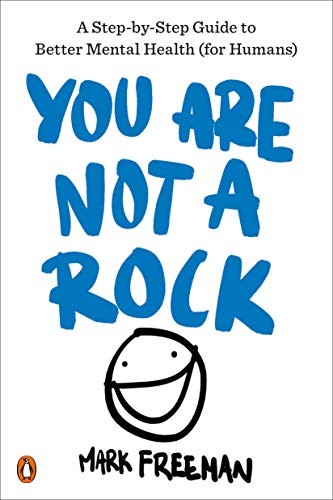Paperback, 272 pages
Published Sept. 4, 2018 by Penguin Books.

Paperback, 272 pages
Published Sept. 4, 2018 by Penguin Books.
Mental health is . . . being yourself.
A prescriptive and positive guide, illustrated with line drawings, making the case that mental well-being, like physical health, can be strengthened over time and with specific techniques
We all want to feel less anxiety, guilt, anger and sadness. We want to obsess less and be less lonely, free ourselves from our demons, compulsive habits, and stress. But as humans (unlike rocks) we experience all of these. And paradoxically, trying to avoid and control them only makes things worse.
Having struggled with serious mental illness for many years himself, Mark Freeman has become a dedicated mental-health advocate and coach. He makes the case that instead of trying to feel less and avoid pain and stress, we need to build emotional fitness, especially our capacity for strength, balance and focus. With wit, compassion, and depth of experience and anecdotes, he shows that we can …
Mental health is . . . being yourself.
A prescriptive and positive guide, illustrated with line drawings, making the case that mental well-being, like physical health, can be strengthened over time and with specific techniques
We all want to feel less anxiety, guilt, anger and sadness. We want to obsess less and be less lonely, free ourselves from our demons, compulsive habits, and stress. But as humans (unlike rocks) we experience all of these. And paradoxically, trying to avoid and control them only makes things worse.
Having struggled with serious mental illness for many years himself, Mark Freeman has become a dedicated mental-health advocate and coach. He makes the case that instead of trying to feel less and avoid pain and stress, we need to build emotional fitness, especially our capacity for strength, balance and focus. With wit, compassion, and depth of experience and anecdotes, he shows that we can recover from many mental disorders, from mild to very serious, at all ages and stages of life, and even if other methods have failed. Freeman's innovative approach makes use of a range of therapeutic techniques, mindfulness training, peer support, humor, and common sense.